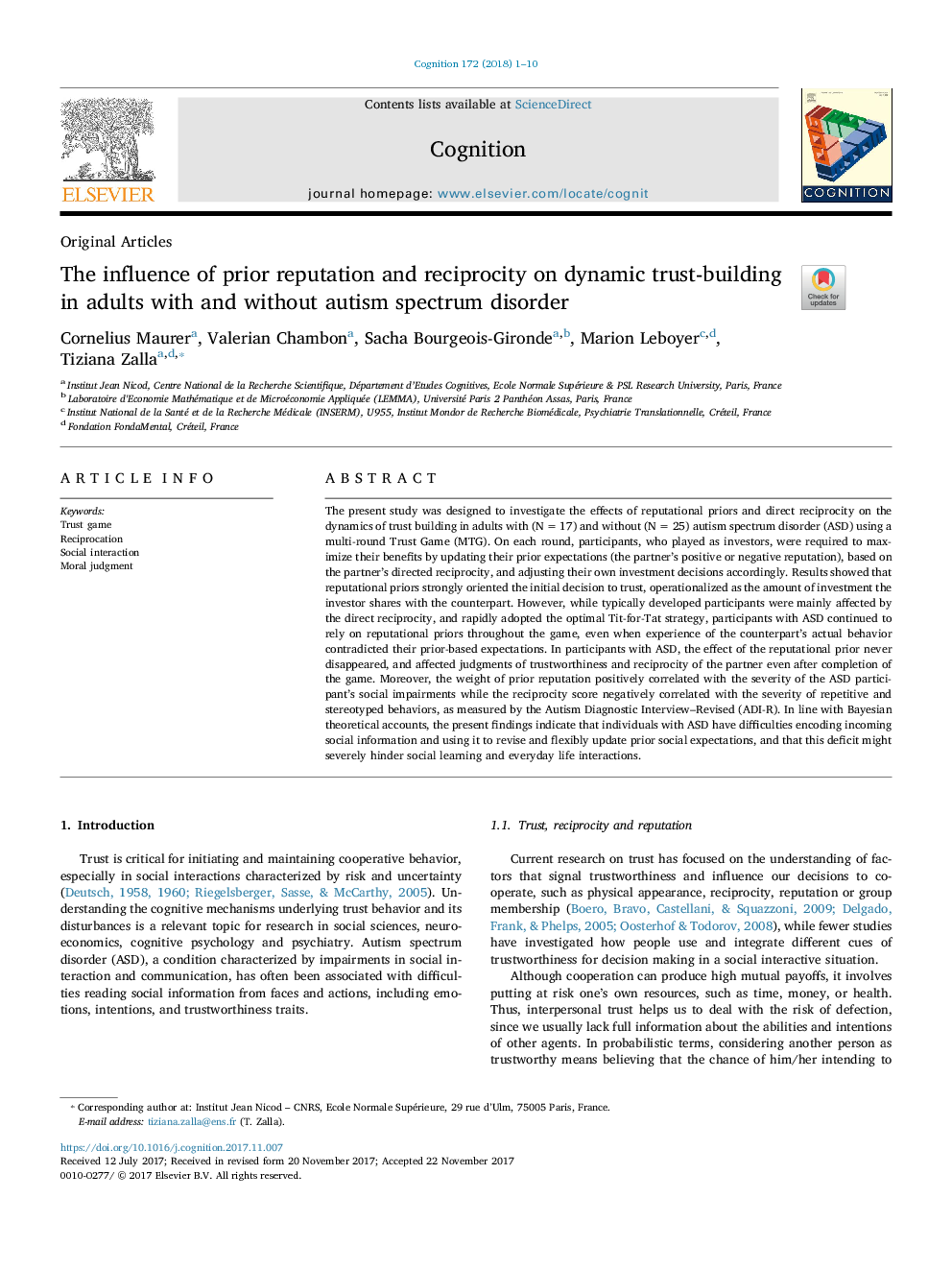ترجمه فارسی عنوان مقاله
تأثیر اعتبار قبلی و متقابل در ایجاد اعتماد به نفس بالقوه در بزرگسالان مبتلا به اختلال طیف اوتیسم و بدون آن
عنوان انگلیسی
The influence of prior reputation and reciprocity on dynamic trust-building in adults with and without autism spectrum disorder
| کد مقاله | سال انتشار | تعداد صفحات مقاله انگلیسی |
|---|---|---|
| 93731 | 2018 | 10 صفحه PDF |
منبع

Publisher : Elsevier - Science Direct (الزویر - ساینس دایرکت)
Journal : Cognition, Volume 172, March 2018, Pages 1-10
ترجمه کلمات کلیدی
اعتماد به نفس، متقابل تعامل اجتماعی، قضاوت اخلاقی،
کلمات کلیدی انگلیسی
Trust game; Reciprocation; Social interaction; Moral judgment;

